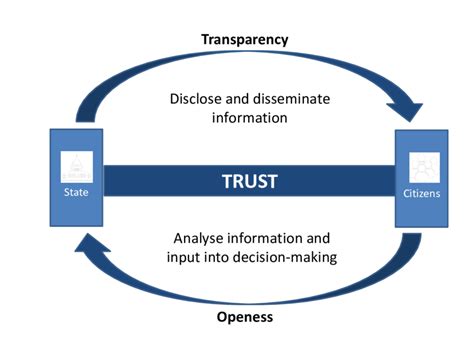
A woman revealed that a terse, five-word text message from her ex-mother-in-law shattered years of silence following her split from her son. The message, “I miss you. Please call,” came after an extended period of no contact, despite the two women having once shared a close bond. The revelation has sparked widespread discussion online about the complexities of relationships following divorce, particularly the often-strained dynamics between former in-laws.
The woman, whose name has been withheld to protect her privacy, shared her story on a popular online forum, recounting how her close relationship with her former mother-in-law dissolved after her divorce from her husband. She described the initial warmth and connection they shared, explaining how her ex-mother-in-law had become a confidante and friend during her marriage. “We were genuinely close,” she wrote. “She was like the mother I never had.”
However, the divorce brought an abrupt end to their communication. The woman explained that she understood the awkward position her ex-mother-in-law was in, caught between loyalty to her son and affection for her former daughter-in-law. She respected the silence, assuming it was the best way to navigate the situation.
The unexpected text message arrived years later, completely out of the blue. The woman admitted to being shocked and unsure how to respond. After a period of reflection, she decided to call her ex-mother-in-law. The conversation that followed was described as emotional and cathartic, with both women expressing their regrets over the lost connection.
“She told me she had been wanting to reach out for years, but didn’t know how,” the woman recounted. “She was afraid of upsetting her son, but she missed me terribly.” The conversation revealed the depth of the ex-mother-in-law’s feelings and the pain she had experienced from the forced separation.
The woman’s story has resonated with many online, prompting a flood of comments and shared experiences from others who have navigated similar situations. Many expressed sympathy for both women, acknowledging the difficult position of maintaining relationships after a divorce. Others offered advice and encouragement, urging those in similar circumstances to consider reaching out and rekindling lost connections.
The incident highlights the often-overlooked complexities of family dynamics in the wake of divorce. While the focus is typically on the relationship between the divorcing couple, the impact on extended family members, particularly in-laws, can be significant. Maintaining these relationships requires navigating a delicate balance of loyalty, affection, and respect.
The woman’s story serves as a reminder that even after a marriage ends, the bonds formed between individuals can endure. It also underscores the importance of open communication and the willingness to bridge divides, even when faced with potentially awkward or uncomfortable situations. The five-word text message ultimately opened the door to healing and reconciliation, demonstrating the power of a simple gesture to overcome years of silence and regret. The initial online post detailed the sequence of events, and the emotional rollercoaster the woman experienced. Many comments reflected similar stories from women who felt abandoned by their former in-laws. The post went viral, highlighting a silent but significant casualty of divorce: the fractured relationships with the extended family.
The woman’s experience has sparked a wider conversation about societal expectations surrounding in-law relationships after divorce. Traditionally, there’s an implicit assumption that loyalty lies with the blood relative, often leading to the severing of ties with the former spouse’s family. This can be particularly painful when genuine affection and connection existed prior to the marital breakdown.
Experts in family dynamics suggest that maintaining these relationships, when possible and healthy, can be beneficial for all involved, especially if children are involved. A continued relationship with grandparents, aunts, uncles, and cousins from the former spouse’s side can provide a sense of stability and continuity for children navigating the complexities of divorce. However, they caution that such relationships should be carefully managed, with clear boundaries and open communication to avoid conflict or the perception of taking sides.
The woman’s narrative illustrates the enduring power of human connection and the potential for healing, even in the aftermath of significant life changes. Her willingness to share her story has provided solace and encouragement to others grappling with similar situations, highlighting the importance of empathy, understanding, and the courage to reach out, even when faced with uncertainty. The overwhelming response to the woman’s post demonstrates how common this experience is, and it also shows that it’s okay to want and even need these relationships.
The specifics of the divorce were not detailed in the post, but the focus remained on the specific relationship with the ex-mother-in-law and how it was impacted. The woman emphasized that there was no animosity towards her ex-husband, and that the reason for the divorce was mutual and amicable. This neutrality allowed her to focus on the positive connection she had had with her ex-mother-in-law, and the desire to potentially rekindle that.
The reaction online was largely supportive, with many users sharing their own experiences of similar situations. Some recounted stories of maintaining close relationships with former in-laws, while others expressed regret over lost connections. A common theme was the difficulty of navigating loyalty and family dynamics after a divorce, and the importance of communication and understanding. Several commenters suggested seeking guidance from a therapist or counselor specializing in family dynamics to help navigate these complex relationships.
The emotional aspect of the story resonated deeply with readers, highlighting the often-unacknowledged grief associated with the loss of in-law relationships after divorce. While the focus is typically on the ending of the marriage, the severing of ties with individuals who have become like family can be equally painful. This loss can be particularly acute for those who have had difficult or strained relationships with their own biological families, and who have found a sense of belonging and acceptance with their in-laws.
The woman’s story also raises questions about the role of in-laws in supporting their children through divorce. While it’s natural for parents to prioritize their child’s well-being, it’s also important to recognize the impact of the divorce on other family members, including the former spouse. Maintaining a respectful and supportive relationship with the former spouse, when appropriate, can help to minimize conflict and promote healing for all involved.
The woman concluded her post by expressing her gratitude for the outpouring of support she had received, and her hope that her story would inspire others to reach out and reconnect with former in-laws. She emphasized that while not all such attempts may be successful, the potential for rekindling a valued relationship is worth the effort. She plans to meet her former mother-in-law in person soon, and is cautiously optimistic about the future. The experience has highlighted the importance of cherishing meaningful relationships and the power of forgiveness and understanding in overcoming difficult life transitions. The woman continues to engage with commenters on her post, providing advice and support to those who are navigating similar situations. The story serves as a reminder that even in the midst of heartbreak and loss, there is always the possibility of healing and reconciliation. The ripple effect of her post continues to spread, fostering a sense of community and shared experience among those who have felt the pain of fractured in-law relationships after divorce.
Frequently Asked Questions (FAQ)
1. What was the five-word text message that ended years of silence?
The five-word text message was: “I miss you. Please call.” This message was sent from the woman’s ex-mother-in-law after years of no contact following her divorce from the woman’s son.
2. What prompted the ex-mother-in-law to reach out after so many years?
The exact reason for the timing of the message is not explicitly stated in the article. However, the woman stated that her ex-mother-in-law confessed that she had wanted to reach out for years but was afraid of upsetting her son and wasn’t sure how to initiate contact. The passage of time may have given her the courage and perspective to overcome those fears. The article suggests that perhaps she just couldn’t stand the silence anymore.
3. How close were the woman and her ex-mother-in-law before the divorce?
The woman described their relationship as very close. She stated that her ex-mother-in-law was “like the mother I never had,” indicating a deep and meaningful connection that extended beyond the typical in-law relationship. They shared a bond built on trust and mutual affection.
4. What was the woman’s initial reaction to receiving the text message?
The woman admitted to being shocked and unsure how to respond. The unexpected nature of the message, after years of silence, left her feeling surprised and uncertain about her ex-mother-in-law’s intentions. She needed time to process her emotions before deciding how to proceed.
5. What is the main takeaway from this story regarding relationships after divorce?
The main takeaway is that relationships with in-laws can endure even after a marriage ends. The story highlights the importance of open communication, empathy, and the willingness to bridge divides. It suggests that rekindling lost connections is possible, even after years of silence, and that these relationships can be a source of comfort and support during difficult life transitions.
In-Depth Analysis and Expanded Context:
The story of the woman and her ex-mother-in-law provides a poignant glimpse into the often-overlooked complexities of family dynamics following divorce. While the legal and emotional focus typically centers on the divorcing couple and their children, the ripple effects extend far beyond, impacting extended family members, particularly in-laws. This situation highlights the silent casualties of divorce – the fractured bonds of affection and connection that are severed due to societal expectations, familial loyalty, and the inherent awkwardness of navigating relationships after a marital breakdown.
The woman’s initial closeness with her ex-mother-in-law is a testament to the potential for genuine and meaningful relationships to form between individuals who are not biologically related. In many cases, in-laws become surrogate family members, offering support, guidance, and a sense of belonging that may be lacking in one’s own biological family. The loss of such a relationship can be particularly painful, akin to grieving the death of a close friend or family member.
The silence that ensued after the divorce is a common experience for many individuals in similar situations. Societal norms often dictate that loyalty lies with the blood relative, leading in-laws to distance themselves from the former spouse to avoid appearing to take sides or exacerbate the conflict. This can be especially true when the divorce is contentious or involves significant animosity between the divorcing couple.
The ex-mother-in-law’s decision to remain silent for years likely stemmed from a combination of factors. She may have felt obligated to support her son, fearing that contact with his ex-wife would be perceived as disloyal. She may also have been unsure of how to navigate the situation, not wanting to cause further pain or conflict. Additionally, she may have been hesitant to intrude on the woman’s life, assuming that she needed space and time to heal.
The woman’s decision to respect the silence demonstrates her understanding and empathy for the ex-mother-in-law’s position. She recognized the awkwardness of the situation and the potential for conflict and chose to prioritize her ex-mother-in-law’s feelings over her own desire for connection. This act of selflessness likely contributed to the eventual reconciliation.
The five-word text message served as a catalyst, breaking down the wall of silence that had separated the two women for years. It was a simple but powerful gesture that conveyed a depth of emotion and a longing for connection. The message’s brevity may have been intentional, serving as a non-threatening way to initiate contact and gauge the woman’s willingness to reconnect.
The subsequent phone call was described as emotional and cathartic, suggesting that both women had been carrying a burden of regret and unspoken feelings. The ex-mother-in-law’s confession that she had wanted to reach out for years but didn’t know how underscores the paralyzing effect of societal expectations and the fear of causing conflict.
The woman’s story has resonated with so many online because it taps into a universal longing for connection and belonging. Many individuals have experienced the pain of fractured in-law relationships after divorce and can relate to the woman’s feelings of loss and regret. The overwhelming response to her post highlights the need for greater awareness and understanding of the impact of divorce on extended family members.
Experts in family dynamics emphasize the importance of maintaining in-law relationships after divorce whenever possible and healthy. A continued connection with grandparents, aunts, uncles, and cousins from the former spouse’s side can provide a sense of stability and continuity for children navigating the complexities of divorce. It can also offer valuable support and companionship for adults who may be feeling isolated or alone.
However, maintaining these relationships requires careful navigation and clear boundaries. It’s important to avoid taking sides or engaging in gossip about the former spouse. Open communication is essential to ensure that all parties feel respected and comfortable. It may also be helpful to seek guidance from a therapist or counselor specializing in family dynamics to help navigate these complex relationships.
In cases where the divorce was particularly contentious or involved abuse or other harmful behavior, maintaining in-law relationships may not be possible or advisable. The safety and well-being of all parties should always be the top priority. In such situations, it’s important to set clear boundaries and protect oneself from further harm.
The woman’s story serves as a reminder that forgiveness and understanding are essential for healing after divorce. Holding onto resentment and anger can prevent individuals from moving forward and building healthy relationships in the future. Forgiving the former spouse and their family members, even if their actions were hurtful, can be a liberating experience that allows individuals to reclaim their emotional well-being.
The woman’s willingness to share her story has provided solace and encouragement to others grappling with similar situations. Her vulnerability and honesty have created a sense of community and shared experience among those who have felt the pain of fractured in-law relationships after divorce. Her story serves as a beacon of hope, demonstrating that even in the midst of heartbreak and loss, there is always the possibility of healing and reconciliation.
The long-term impact of the woman’s decision to reconnect with her ex-mother-in-law remains to be seen. However, the initial contact suggests that there is a strong foundation of affection and respect upon which to rebuild their relationship. By prioritizing communication, empathy, and forgiveness, they have the potential to create a new and meaningful connection that enriches both of their lives.
This situation also brings to light the cultural expectations surrounding divorce and family relationships. In many societies, there is an implicit expectation that individuals will sever ties with their former spouse’s family after a divorce. This expectation can be particularly strong in cultures that place a high value on familial loyalty and tradition. Challenging these expectations requires courage and a willingness to prioritize personal connection over societal norms.
The woman’s story encourages individuals to question these expectations and to consider the potential benefits of maintaining in-law relationships after divorce. It highlights the importance of prioritizing personal connections over societal pressures and of valuing the unique and meaningful relationships that can form between individuals who are not biologically related.
Ultimately, the story of the woman and her ex-mother-in-law is a testament to the enduring power of human connection and the potential for healing and reconciliation, even in the aftermath of significant life changes. It serves as a reminder that relationships are worth fighting for and that even the smallest gesture of kindness and understanding can have a profound impact. The narrative suggests that chosen family can often be just as, if not more, important than blood relatives. The ability to choose to foster these relationships, even after a divorce, shows the strength and importance of these bonds. It also highlights the possibility of redefining family after divorce and creating a new normal that includes those who bring joy and support to one’s life.
The woman’s story is a powerful example of how divorce can impact not only the immediate family but also the extended family network. It is a reminder that divorce is not just the end of a marriage but also the potential loss of valuable relationships. However, it also shows that these relationships can be salvaged and that it is possible to maintain meaningful connections with former in-laws. It’s a celebration of the resilience of human relationships and the potential for healing and growth after a difficult life event. The act of reaching out, in this case, was brave and ultimately rewarding, proving that sometimes, taking a chance on a relationship can lead to unexpected and positive outcomes. The woman’s story encourages others to consider the value of their in-law relationships and to explore the possibility of maintaining those connections, even after a divorce. It is a message of hope and a reminder that even in the midst of change and loss, there is still the potential for love, connection, and support.









